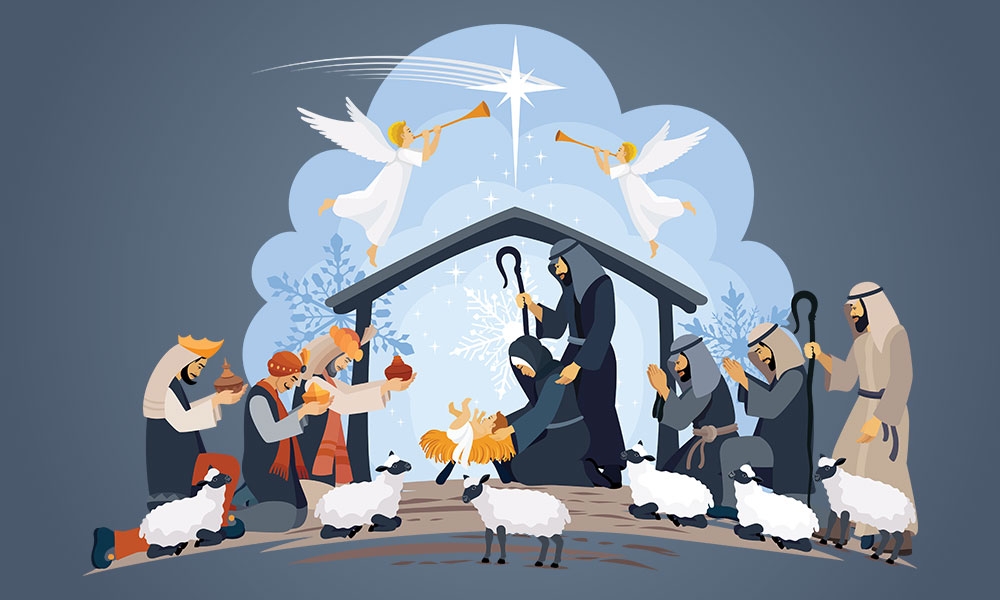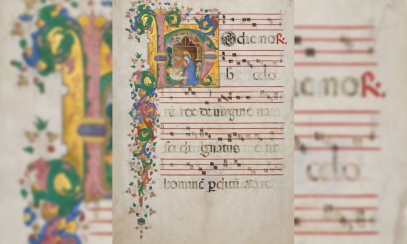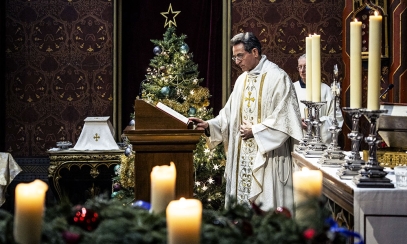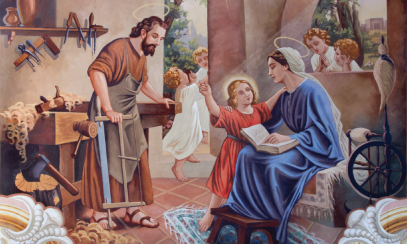
Welcoming the Christ Child
No detail in God’s plan of salvation is coincidental. In the accounts of Jesus’ birth and infancy, a variety of people (and angels, too!) show up on the scene. Each of them reveals something about the mystery of Christmas.
No detail in God’s plan of salvation is coincidental. In the accounts of Jesus’ birth and infancy, a variety of people (and angels, too!) show up on the scene. Each of them reveals something about the mystery of Christmas.
The angels
Praise
The birth of Jesus took place in silence under the cover of night. How did the shepherds know that the infant lying in the manger, surrounded by animals and wrapped in swaddling clothes, was no ordinary child? The angels had been sent to reveal to the shepherds what they are ceaselessly doing in heaven: praising God. Praise, the angels teach us, is the best way to respond to God’s action in our lives, even when he comes to us amid our ordinary occupations. No matter where we are, we can always join our praise and thanksgiving to the songs of the Holy Angels: Glory to God in the highest and on earth peace to those on whom his favor rests.
The shepherds
Humility
Imagine the shepherds’ amazement when an angel appeared announcing the Savior’s birth! These humble laborers were neither rich nor important in the eyes of the world, but God chose them to be the first to receive the news of this extraordinary event.
The shepherds remind us of God’s love for those who are humble and poor. This means not only those who are materially poor, but, above all, those who rely on God for everything. Only those who know how much they need God are ready to receive him. Only they can respond wholeheartedly when he reveals himself. For this reason, if we wish to encounter the Lord, we should strive to become “poor in spirit.” (Mt. 5:3) Then we, like the shepherds, will be able to offer him the homage of our love.
The Magi
Wisdom
The Magi are often referred to as “Wise Men” – and fittingly so! These Gentiles (non-Jews) studied the stars and (correctly) guessed the place and time in which the long-expected Jewish Messiah would be born. We celebrate the visit of the Magi on the Feast of the Epiphany.
Yet the Magi display for us a wisdom much deeper than the knowledge we can acquire from study. By undertaking their arduous journey, they teach us that a wise man seeks the truth, even at personal cost. By recognizing the Messiah amid lowly circumstances, they teach us that one who is open to the truth will find it in Jesus Christ. Finally, by offering Jesus their gifts of gold, frankincense and myrrh, they teach us that the fitting response to an encounter with God, no matter how important or intelligent we may be, is a posture of loving adoration.



